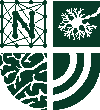Banca de DEFESA: ALLAN FALCONI SOUTO E SILVA
Uma banca de DEFESA de MESTRADO foi cadastrada pelo programa.STUDENT : ALLAN FALCONI SOUTO E SILVA
DATE: 24/02/2025
TIME: 14:00
LOCAL: Sala 205 do Bloco Zeta do Campus de São Bernardo do Campo da Universidade Federal do ABC
TITLE:
Behavioral effects of ayahuasca in an animal model of schizophrenia
PAGES: 75
BIG AREA: Ciências Biológicas
AREA: Farmacologia
SUBÁREA: Neuropsicofarmacologia
SUMMARY:
Ayahuasca is a preparation made from two plants that has psychoactive effects, generating an altered state of consciousness. Currently, these effects have been widely studied and ayahuasca, as well as a wide range of hallucinogenic substances, have therapeutic potential for disorders such as depression and substance use in pre-clinical and clinical studies. Despite the therapeutic potential, case studies indicate that the hallucinogenic effect of ayahuasca, which is generally short and harmless, can trigger a psychotic dysphoric event, especially in individuals who already have a predisposition to psychosis, that is, who have a clinical diagnostic of schizophrenia or bipolar affective disorder, but also if the use of the substance is associated with MAO inhibitor medications. There is still no consensus in the scientific community on the relationship between ayahuasca and psychotic episodes, nor on its mechanisms of action. Therefore, the objective of this present work is to evaluate, based on behavioral tests, possible psychotic-like effects of ayahuasca administration in animal models of schizophrenia and related neurotransmission pathways.
During qualification, the results obtained in pharmacological interaction tests and the results of a pilot of the schizophrenia induction model using MK-801 will be presented.
COMMITTEE MEMBERS:
Presidente - Interno ao Programa - 1675707 - FULVIO RIELI MENDES
Membro Titular - Examinador(a) Interno ao Programa - 1994696 - SILVIA HONDA TAKADA
Membro Titular - Examinador(a) Externo à Instituição - VANESSA COSTHEK ABÍLIO - UNIFESP
Membro Suplente - Examinador(a) Interno ao Programa - 1872537 - MARCELA BERMUDEZ ECHEVERRY
Membro Suplente - Examinador(a) Externo à Instituição - MARIA GABRIELA MENEZES DE OLIVEIRA - UNIFESP




